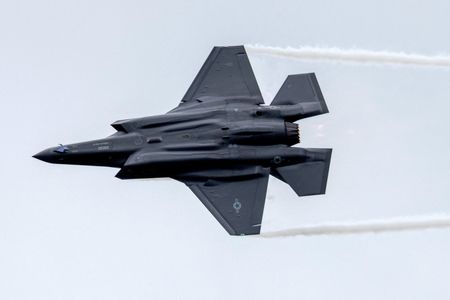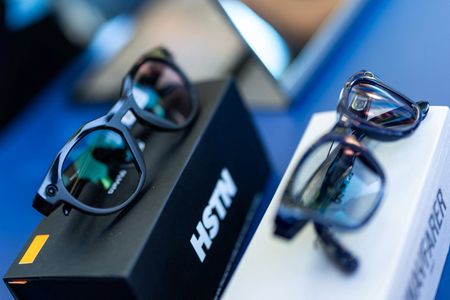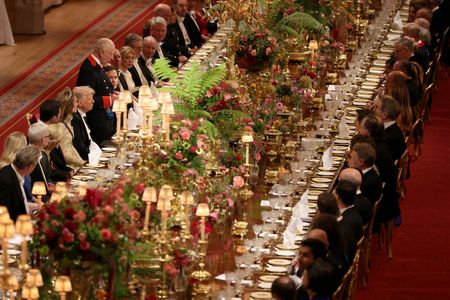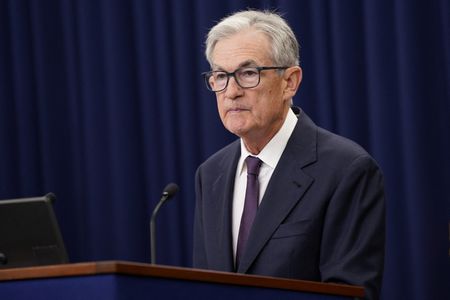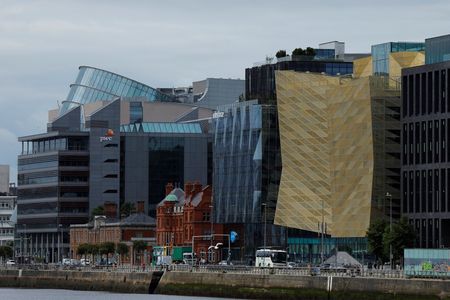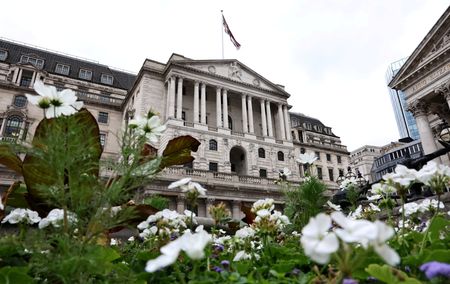By Gwladys Fouche
OSLO (Reuters) -Opposition efforts to allow Norway’s $1.8 trillion wealth fund, the world’s largest, to invest in large defence companies appear to be faltering, according to lawmakers involved in the process.
The fund follows ethical rules decided by parliament that prevent it from buying stakes in the likes of Airbus, Boeing, BAE Systems and Lockheed Martin on the grounds they make components for nuclear weapons.
Two opposition parties, the Conservatives and the Progress Party, have in recent months called on lawmakers to change the fund’s guidelines on that point, coming at a time when European countries are ramping up military investment.
Support for change also came from the head of the central bank, which operates the fund, who said in February Norway “must be open to the possibility that what is considered to be ethically acceptable may change as the world again becomes marked by military rearmament and growing tensions between countries”.
The Conservatives say it is no longer reasonable to exclude companies that make equipment critical to Norway and its allies’ battle power.
The fund can invest in defence companies if they are not involved in the production of nuclear weapons and is therefore invested in the likes of Rheinmetall or Leonardo. But the guidelines prevent the fund from investing in several major defence companies.
Progress, meanwhile, is presenting a private member’s bill, which argues it is hypocritical of Oslo to ban its fund from buying shares in Lockheed Martin while buying 52 F-35 fighter jets from the U.S. defence contractor at the same time.
“This is to make capital available to the defence industry, which is especially necessary now,” one of the co-authors of the bill, Hans Andreas Limi, told Reuters.
They would require support from other parties to overturn the will of the minority Labour government and allow one of the world’s largest investors to allot billions of dollars to defence companies.
This could in turn encourage other investors sceptical of the defence industry to reconsider their views, given the fund has long been a leading voice on matters of ethical investing.
LACK OF SUPPORT
But supporters of the change appear to be facing an uphill battle.
Among those opposing the change, is the finance ministry, led by no other than former NATO Secretary General Jens Stoltenberg of the Labour Party.
“We believe it is too early for another full review of the guidelines now,” Deputy Finance Minister Ellen Reitan told Reuters. She said there had to be a broad consensus in parliament and reviews of the fund’s ethical criteria should not be made on an ad hoc basis.
“Over time, it may be appropriate to change the criteria in the guidelines. Such changes should be made on the basis of comprehensive and thorough assessments where the criteria are seen in context,” she said.
In a sign of its opposition, the finance ministry did not mention a possible change in its white paper on the fund in April. The paper would be the natural place to flag the issue if it were to be debated and voted on in parliament in the coming weeks.
A key vote could come from the Centre Party, but it also appears to be against the proposed change.
“To have calm around the fund is important, and a guarantee of its perennity, so I think it is wise to proceed very carefully,” Trygve Slagsvold Vedum, the leader of the Centre Party, who until January was finance minister, told Reuters.
Other parties, such as the Greens, concur.
“It is true that we are in a phase of massive military armament, which we need to support,” Rasmus Hansson, parliamentary leader for the Greens, told Reuters.
“But we see no reason for it to be necessary for the Norwegian sovereign wealth fund to profit from this rearmament.”
(Reporting by Gwladys FoucheEditing by Tomasz Janowski)

